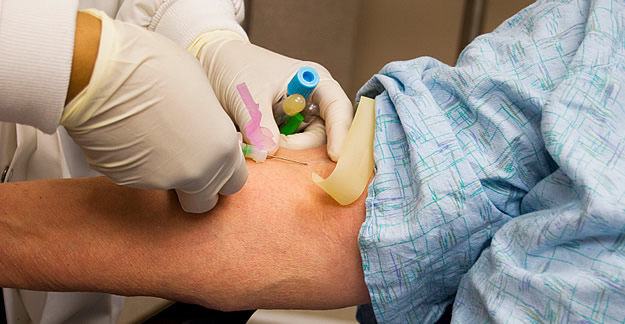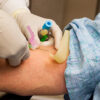Fans of “Seinfeld,” the TV show still in reruns, will remember when Elaine failed a company drug test because she had a poppy-seed bagel an hour earlier (opiates originated from poppies. The seeds cannot make you high, but they can register in tests). Very funny, but a good reminder for all of us. The herbs, medicines and supplements we take in our daily life can distort the results of blood and urine tests, possibly leading to wrong or missed diagnoses.
The regular blood and urine tests you get at the doctor can be delicate. In 2017, researchers found that 134 drugs were listed as potentially interfering with laboratory tests such as blood and urine tests, but it’s unclear how many more might have similar effects. This is another good reason to remind your doctor in every visit about other drugs and supplements you take.
Here are some of the most common drugs and supplements that might interfere with the results of your tests. If you use any of these, be sure to ask your doctor whether you should continue taking them before laboratory testing, and if not, how long you should abstain.
1. Tylenol (Acetaminophen)
Tylenol can interfere with glucose monitoring or cause falsely elevated liver enzymes. It’s important to note that in some cases, acetaminophen really can cause liver damage, but it can also artificially skew your lab results even in the absence of actual liver injury.
2. Antidepressants
When your body processes antidepressants, it creates similar byproducts as when it processes drugs like amphetamines or benzodiazepines. That can cause a false positive on a drug screen. It’s unclear why, but antidepressants have also been associated with false positives on pregnancy tests.
3. Antibiotics
Antibiotics can wreak havoc on a number of blood tests. For example, cefalotin, cefazolin, and cefpirome can raise your creatinine levels, which may make your healthcare provider think you have kidney problems or muscles that are breaking down.
Other antibiotics, such as ceftriaxone, can heighten your bilirubin levels, making it seem like you may have liver problems.
Several other antibiotics, including ciprofloxacin, levofloxacin, moxifloxacin,and gatifloxacin, can throw your glucose out of whack in either direction, especially if you’re using a continuous glucose monitor.
4. Biotin (vitamin B7)
In 2017, the FDA issued a warning that biotin supplements could interfere with certain lab tests, including troponin tests, which are used to identify heart damage, especially in heart attacks. In fact, prior to the FDA issuing the warning, a woman died after her blood tests showed deceivingly low levels of troponin, hiding the fact that her heart wasn’t functioning properly, due to the interference of biotin.
It’s not just heart function. Many lab tests rely on streptavidin-biotinylated antibodies which, unfortunately, interact with biotin. The high doses of the vitamin in popular supplements that promise to improve hair, skin and nails can skew their results. For example, one woman’s blood tests suggested that her thyroid was extremely underactive. But, when her doctors realized she was taking biotin for an unrelated condition, they retested and discovered the organ was functioning normally.
5. Creatine
Creatine is a supplement popular among weightlifters and those hoping to build muscle mass. Creatinine is a waste product your body makes as it processes creatine. Creatinine is filtered out by your kidneys. Typically, if your creatinine levels are high on a blood test, it suggests that you have kidney disease. Those high levels showing up on a routine blood test may make it look like you have kidney disease, when your kidneys are perfectly healthy.
These are just a few examples of drug and supplements that can interfere with your laboratory tests. It is not an exhaustive list. Be sure to discuss anything you take, even if it isn’t a prescription, with your physician. Don’t skip taking your prescriptions unless your provider tells you to. And, if you see any unusual results, be sure to ask if anything—drugs, supplements, or even food!—could have influenced your tests before you begin any new treatment plans.






